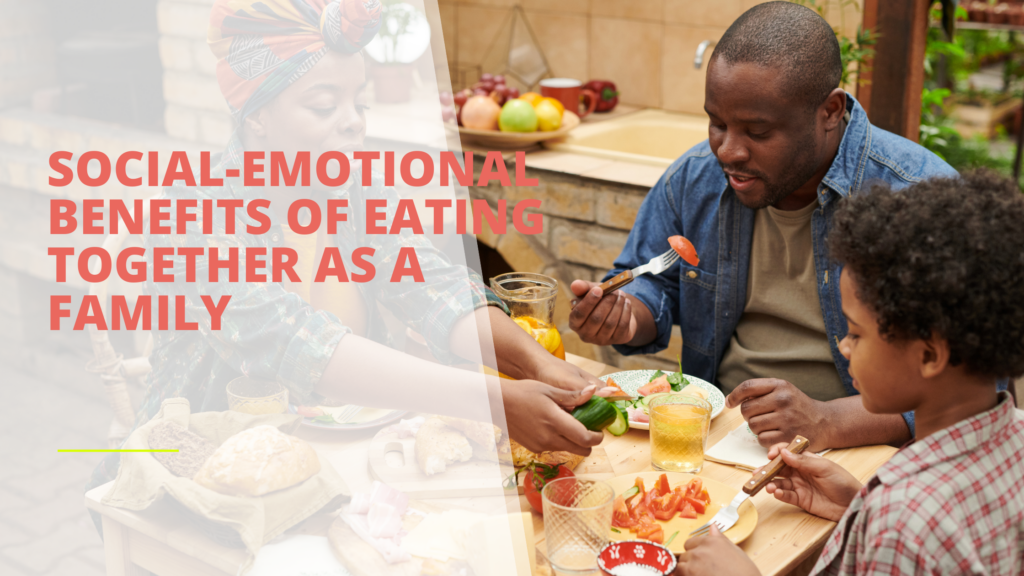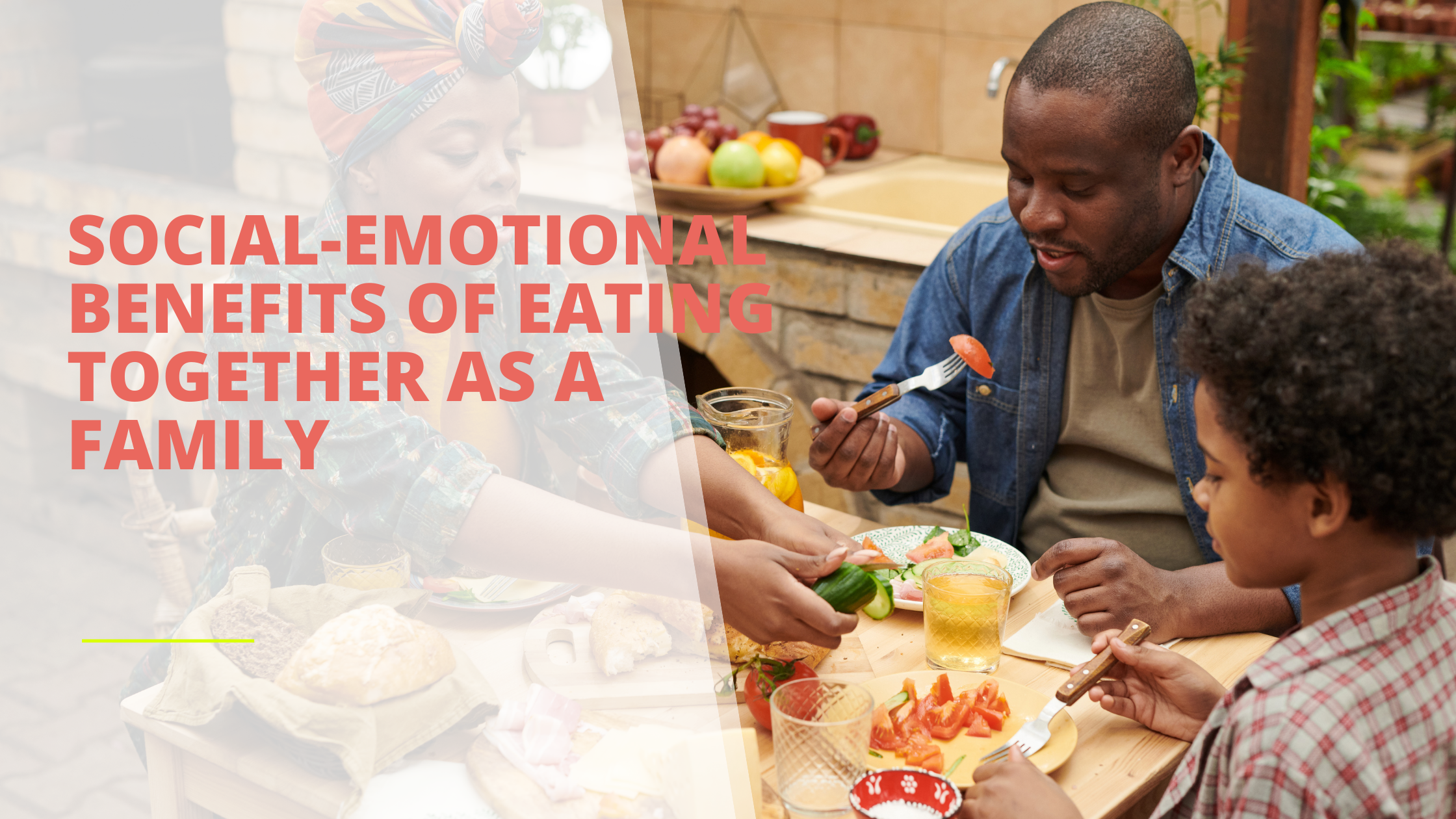
In today’s fast-paced world, finding quality time to connect with our loved ones can be challenging. However, carving out a few moments each day to share a meal with your family and engage in The Table Talk Project can have a profound impact on your overall wellbeing. Beyond the pleasure of savouring delicious food, research shows that regular family dinners contribute to higher self-esteem, resilience, and a more positive outlook on the future. In this article, we will explore the social-emotional benefits of eating dinner with the family and provide practical tips for making it a meaningful and consistent practice in your household.
- Boosting self-esteem and resilience: Gathering around the dinner table creates a safe and nurturing environment where family members can connect and engage in meaningful conversations. This regular interaction fosters a sense of belonging and strengthens family bonds, leading to higher self-esteem. Moreover, sharing meals together allows parents and siblings to provide support, encouragement, and guidance, which helps children develop resilience. Through open and honest communication during dinner, family members can learn to cope with challenges, develop problem-solving skills, and build emotional resilience for the future.
- Preventing risky behaviours and promoting mental health: Studies have shown that regular family dinners are associated with lower rates of substance abuse, teen pregnancy, behavioural problems in school, and depression among adolescents. Engaging in consistent family dinners provides a supportive environment for open dialogue, where parents can discuss the risks and consequences of unhealthy behaviours. Adolescents who have regular family dinners are more likely to feel connected to their parents and have a stronger support system, reducing the likelihood of engaging in risky behaviours.
- Building resilience against cyber-bullying: With the rise of technology, cyber-bullying has become a pervasive issue for many young individuals. Family dinners serve as a protective space where children can seek emotional support, share their experiences, and develop resilience against cyber-bullying. By fostering open communication and active listening, parents can understand and address any concerns their children may have, providing them with guidance and coping strategies to overcome such challenges.
- Promoting healthy body image and eating habits: Regular family dinners play a vital role in cultivating a positive body image and promoting healthy eating habits. Research suggests that girls who have five or more family meals per week have a 30% lower risk of developing eating disorders. Family meals provide an opportunity to model balanced eating choices and encourage conversations about nutrition and self-care. By promoting a healthy relationship with food and emphasising the importance of nourishing the body, family dinners can contribute to a positive body image and reduce the likelihood of disordered eating behaviours.
Practical Tips for Meaningful Family Dinners:
- Set a consistent schedule: Establish a regular time for family dinners that works for everyone’s schedule. Consistency helps build routine and makes it easier for family members to plan their day around this shared time.
- Involve everyone in meal preparation: Encourage family members to take turns in meal planning, grocery shopping, and cooking. Involving everyone fosters a sense of ownership and investment in the family dinner experience.
- Create a technology-free zone: Make the dinner table a technology-free zone to ensure everyone is fully present and engaged in the conversation. This helps strengthen communication and prevents distractions. You can print out our Conversation Starters when you choose them in the “Menu” on the website.
- Encourage open and non-judgemental conversations: Create a safe space where family members can express their thoughts, feelings, and concerns without fear of judgement. Active listening and empathy are crucial for nurturing meaningful connections during dinner.
Regular family dinners have far-reaching, social-emotional benefits, contributing to higher self-esteem, resilience, and improved mental health. By fostering open communication, promoting healthy habits, and creating a nurturing environment, family dinners become a powerful tool in building strong family bonds and supporting individual growth. Take the time to prioritise family dinners and watch as these shared meals become cherished moments that positively impact the wellbeing of your entire family.

